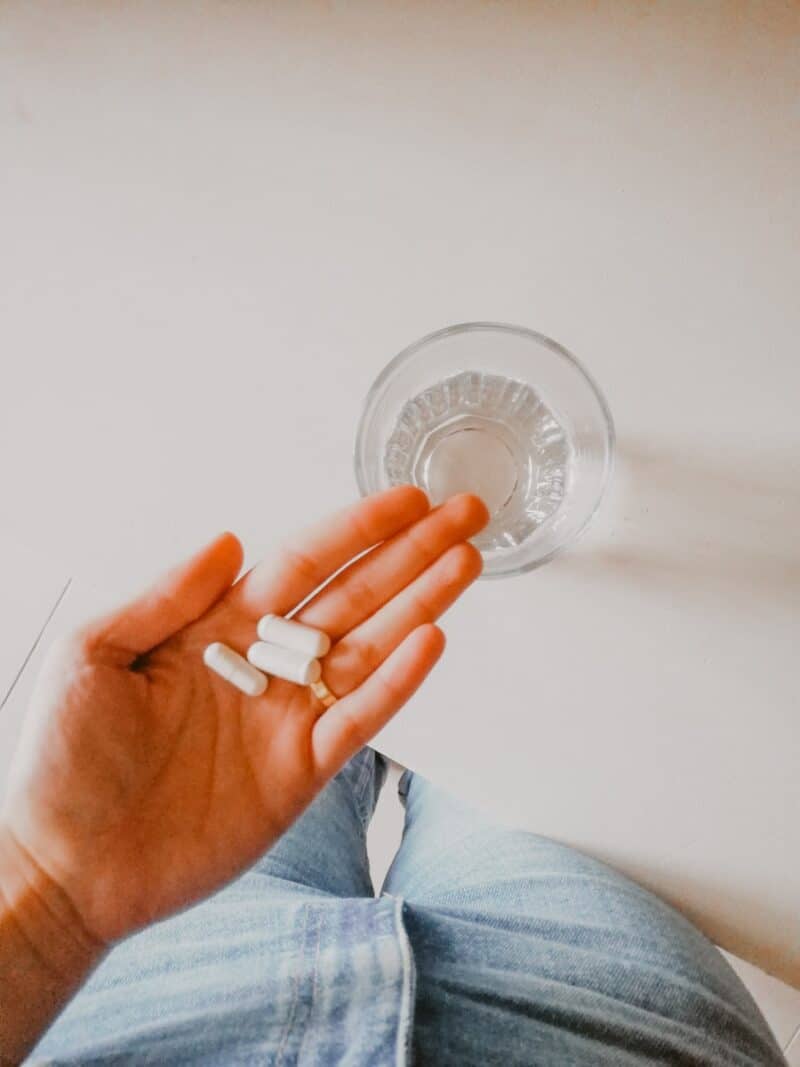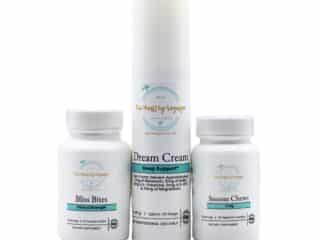
Understanding Natural Supplements
Natural supplements derived from plants, herbs, and other natural sources have been used for centuries in various cultures for their healing properties. Unlike synthetic medications, these supplements typically offer a holistic approach to health, aiming to balance the body’s systems rather than merely alleviating symptoms.
For those interested in incorporating natural supplements derived from plants into their mental health regimen, it’s essential to consider quality and pricing. You can check CBD distillate price to ensure you’re getting a high-quality product at a reasonable cost.
Common Types of Natural Supplements
- Herbal Supplements: Derived from plants and herbs like St. John’s Wort, Valerian root, and Ginkgo Biloba.
- Vitamins and Minerals: Essential nutrients like Vitamin D, B-complex vitamins, and magnesium.
- Amino Acids: Including supplements like L-theanine and tryptophan.
- Probiotics: Beneficial bacteria that support gut health, which is closely linked to mental health.
The Connection Between Natural Supplements and Mental Health
Research has shown that natural supplements can influence mental health in several ways, from reducing symptoms of anxiety and depression to improving cognitive function. Here are some key benefits:
Reducing Anxiety and Stress
- Ashwagandha: An adaptogenic herb, Ashwagandha is known for its stress-relieving properties. Studies have indicated that it can lower cortisol levels, the body’s primary stress hormone, thereby reducing anxiety and improving overall well-being.
- Valerian Root: Often used as a natural remedy for insomnia and anxiety, Valerian root can enhance GABA (gamma-aminobutyric acid) levels in the brain, which helps calm the nervous system.
Combating Depression
- St. John’s Wort: This herb has been extensively studied for its antidepressant effects. It is believed to increase the levels of neurotransmitters like serotonin, dopamine, and norepinephrine in the brain, which are crucial for mood regulation.
Enhancing Cognitive Function
- Ginkgo Biloba: Known for its cognitive-enhancing properties, Ginkgo Biloba improves blood flow to the brain, which can enhance memory, focus, and overall cognitive function.
- Phosphatidylserine: A fatty substance produced in the body that covers and protects cells in the brain, phosphatidylserine is essential for cognitive function and has been shown to improve memory and mental clarity.
Improving Sleep Quality
- Melatonin: A hormone that regulates sleep-wake cycles, melatonin supplements can be beneficial for those with sleep disorders. Improved sleep quality directly contributes to better mental health.
- L-Theanine: An amino acid found in tea leaves, L-Theanine promotes relaxation without causing drowsiness, making it a popular supplement for improving sleep quality and reducing anxiety.
The Role of Vitamins and Minerals
Vitamin D
Vitamin D deficiency has been linked to various mental health issues, including depression and seasonal affective disorder (SAD). Supplementing with Vitamin D can help improve mood and reduce the risk of depression.
B-Complex Vitamins
B vitamins, including B6, B12, and folate, play a crucial role in brain health. They help produce neurotransmitters that regulate mood and brain function. Supplementing with B-complex vitamins can improve energy levels, reduce stress, and enhance cognitive function.
Magnesium
Magnesium is essential for over 300 biochemical reactions in the body, including brain function. Low levels of magnesium have been associated with anxiety and depression. Magnesium supplements can help improve mood, reduce anxiety, and enhance sleep quality.
Probiotics and Gut Health
Emerging research highlights the connection between gut health and mental health. The gut-brain axis is a bidirectional communication system linking the gut and the brain. A healthy gut microbiome can positively influence mood and cognitive function.
- Lactobacillus and Bifidobacterium: These probiotic strains are known to support gut health and have been linked to reduced symptoms of anxiety and depression.
- Prebiotics: Non-digestible fibers that feed beneficial gut bacteria, prebiotics can also support mental health by promoting a healthy gut microbiome.
CBD: A Promising Natural Supplement
Cannabidiol (CBD), a compound found in the cannabis plant, has gained significant attention for its potential mental health benefits. Unlike THC, CBD is non-psychoactive and has been studied for its therapeutic effects on various mental health conditions.
Benefits of CBD
- Anxiety Reduction: CBD has been shown to reduce symptoms of anxiety in both human and animal studies. It interacts with the endocannabinoid system, which regulates mood, sleep, and stress responses.
- Depression Relief: Some research suggests that CBD can act as an antidepressant, promoting serotonin activity in the brain.
- Improved Sleep: CBD can help improve sleep quality by addressing underlying issues such as anxiety and pain, leading to better mental health.
Choosing the Right Supplements
While natural supplements can offer numerous benefits for mental health, it’s crucial to approach their use with care. Here are some tips for choosing the right supplements:
Consult with a Healthcare Professional
Before starting any supplement regimen, it’s essential to consult with a healthcare professional, especially if you have existing health conditions or are taking other medications. They can provide personalized advice and help avoid potential interactions.
Research and Quality
Not all supplements are created equal. Look for products from reputable brands that undergo third-party testing to ensure purity and potency. Researching the supplement and its benefits can also help you make informed decisions.
Dosage and Usage
Follow the recommended dosage instructions on the supplement packaging or as advised by your healthcare provider. Overuse or incorrect usage can lead to adverse effects.
Potential Side Effects and Risks
While natural supplements are generally considered safe, they can still cause side effects and interact with other medications. Here are some potential risks to be aware of:
Herbal Supplements
- St. John’s Wort: Can interact with antidepressants and other medications, leading to potentially dangerous side effects.
- Ginkgo Biloba: May increase the risk of bleeding, especially when taken with blood thinners.
Vitamins and Minerals
- Vitamin D: Excessive intake can lead to toxicity, causing symptoms like nausea, vomiting, and weakness.
- Magnesium: High doses can cause diarrhea and abdominal cramping.
CBD
- Side Effects: Some individuals may experience side effects such as fatigue, changes in appetite, and diarrhea.
- Drug Interactions: CBD can interact with certain medications, including blood thinners and anti-seizure medications.
Conclusion
Natural supplements offer a promising avenue for enhancing mental health, providing a complementary approach to traditional treatments. From reducing anxiety and depression to improving cognitive function and sleep quality, these supplements can play a valuable role in promoting psychological well-being. However, it’s crucial to approach their use with caution, consulting healthcare professionals and choosing high-quality products. By doing so, you can safely incorporate natural supplements into your mental health regimen and reap their potential benefits.






